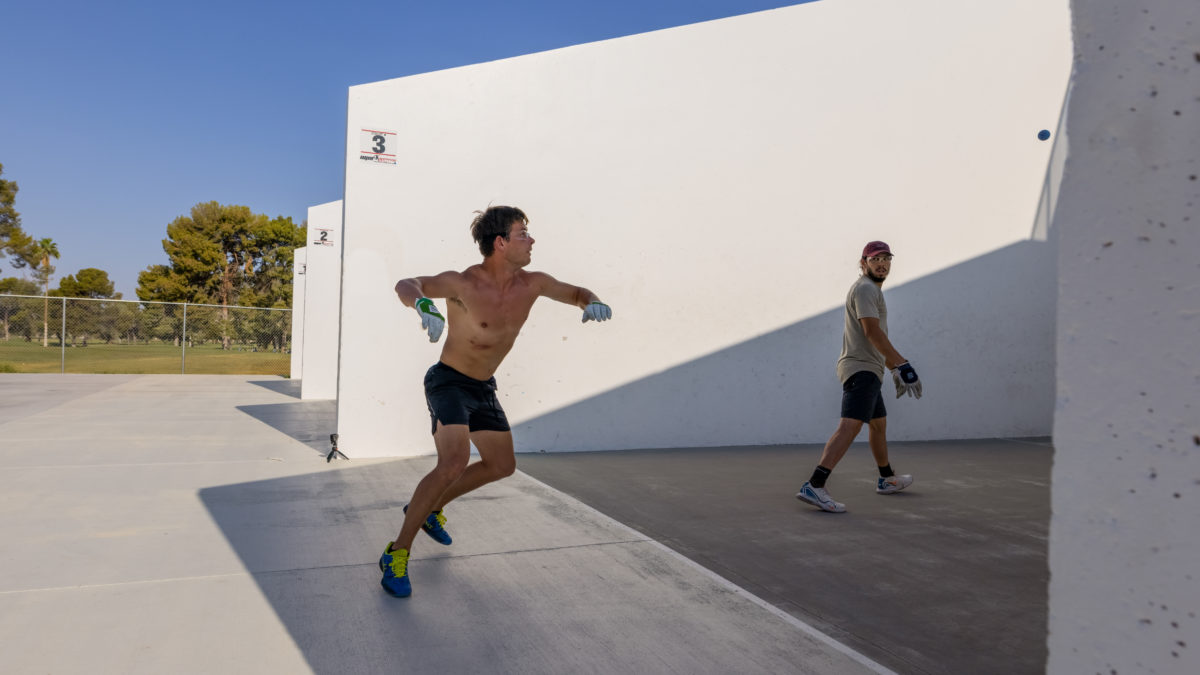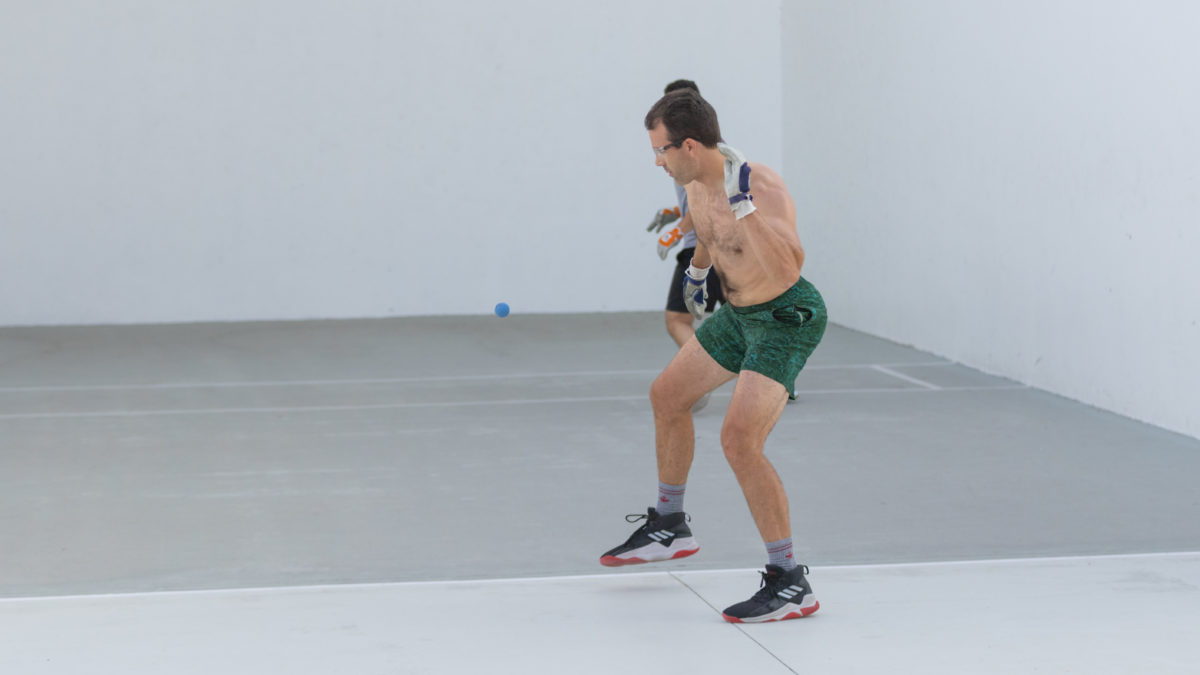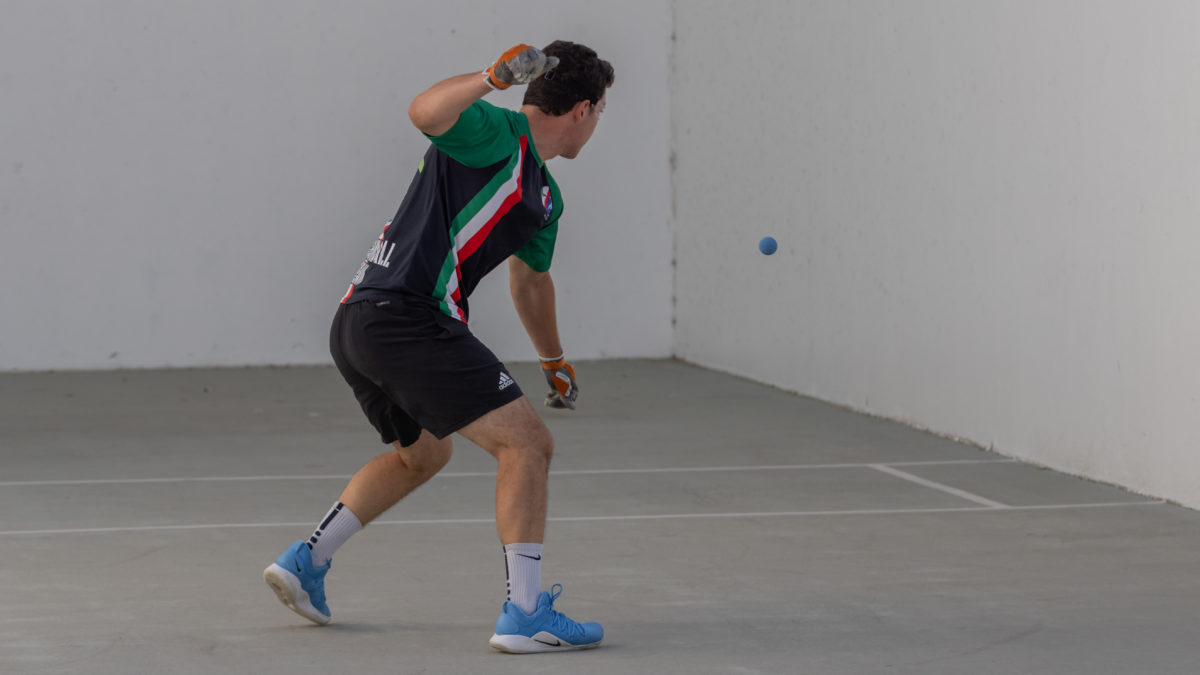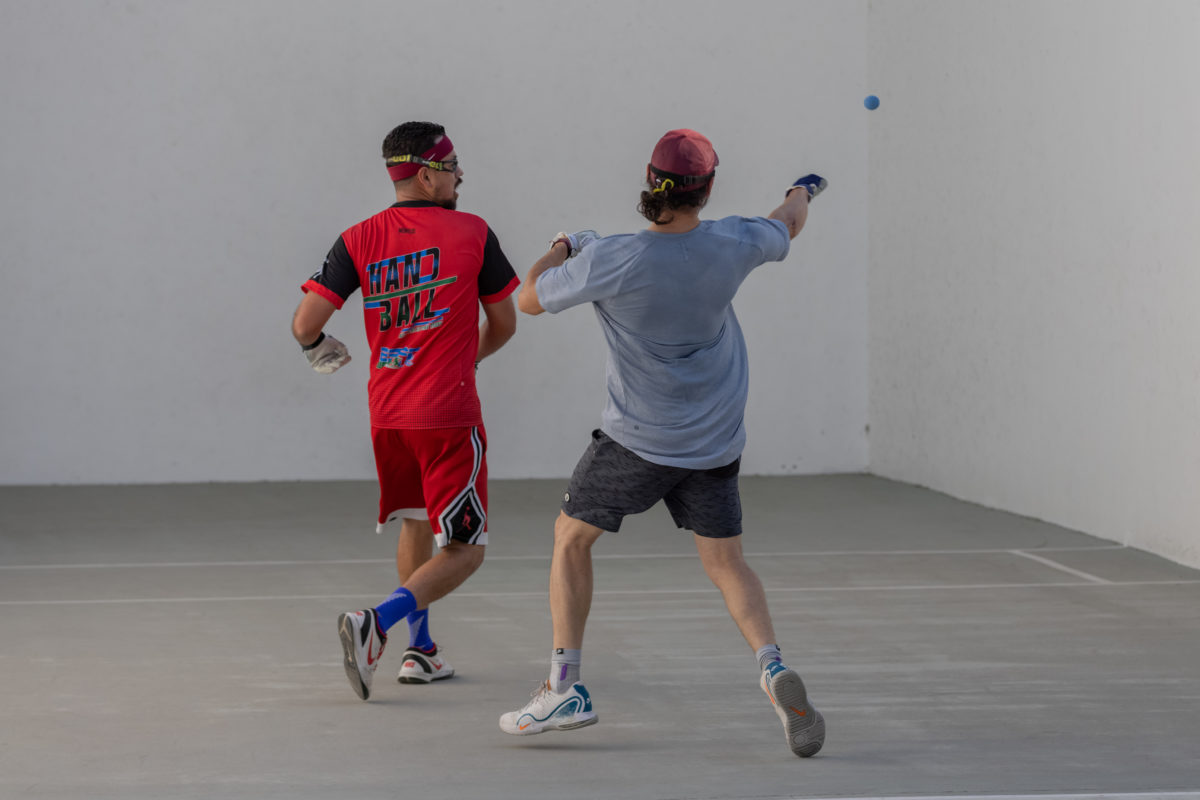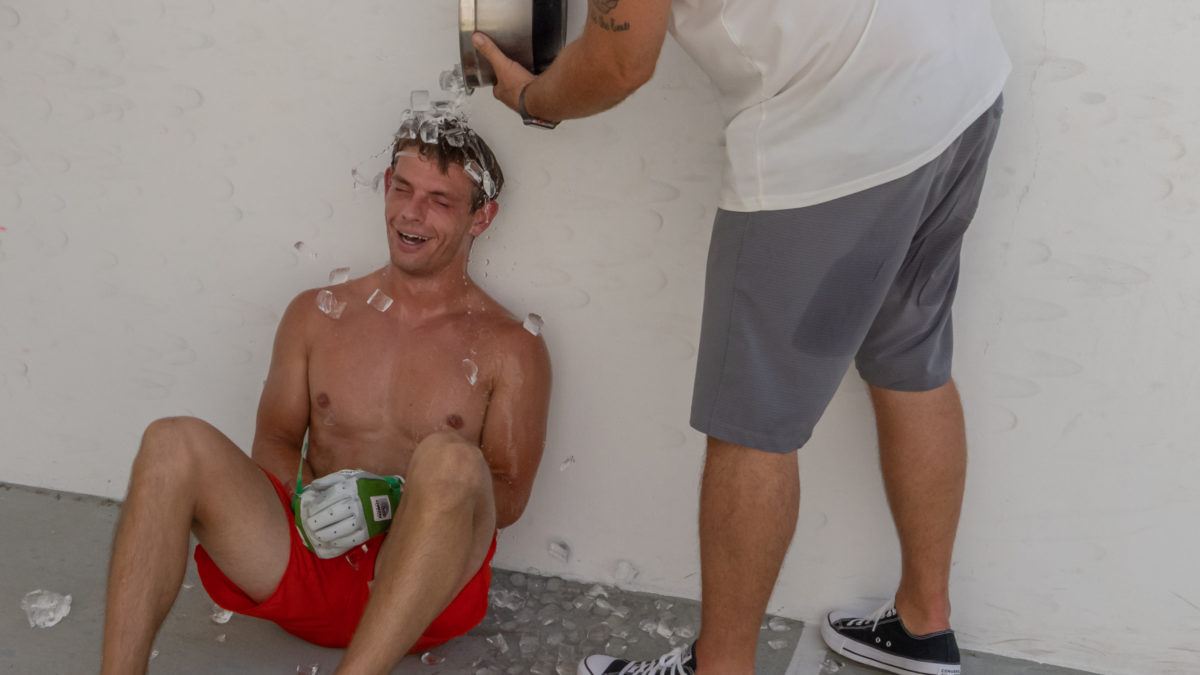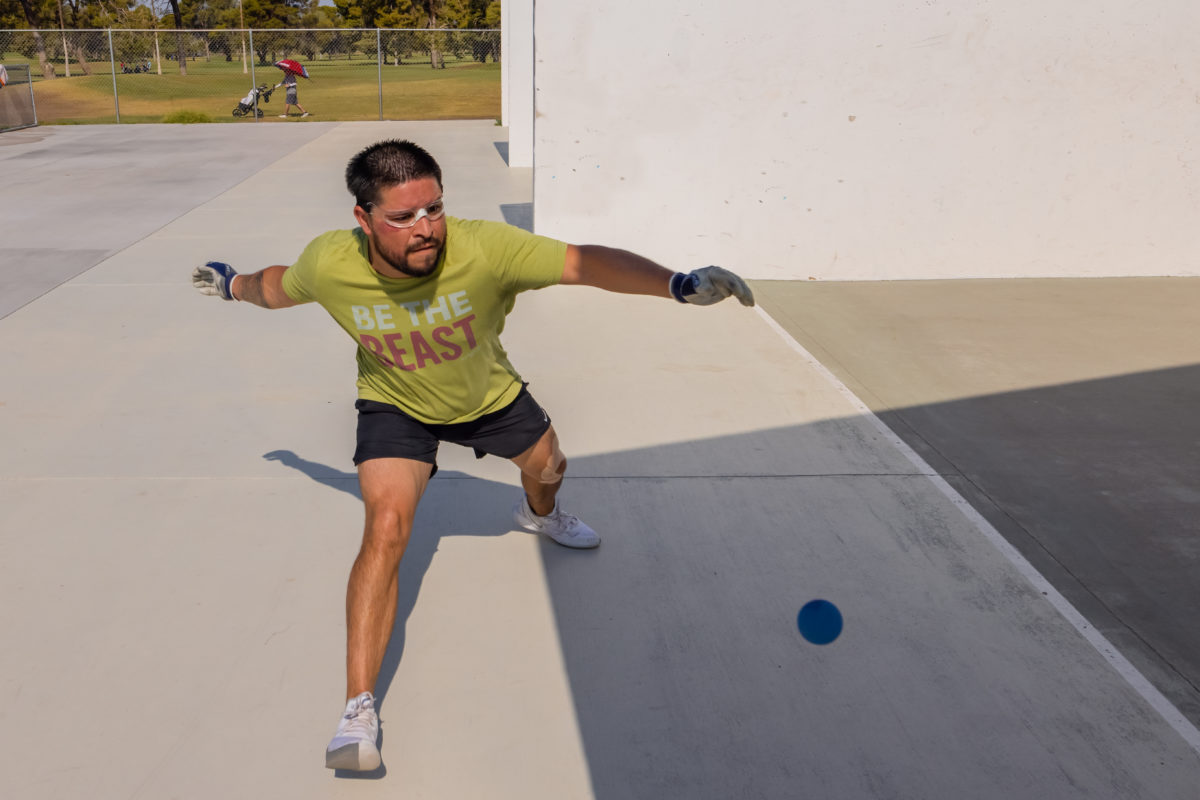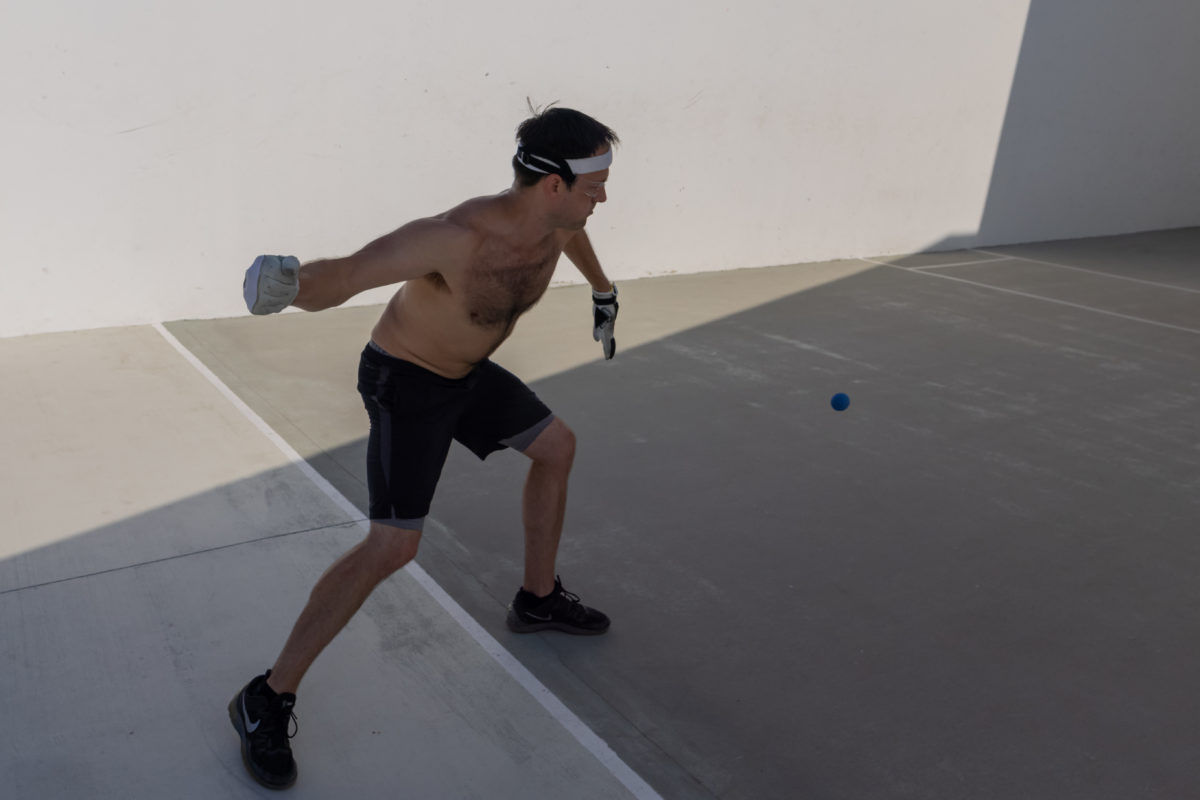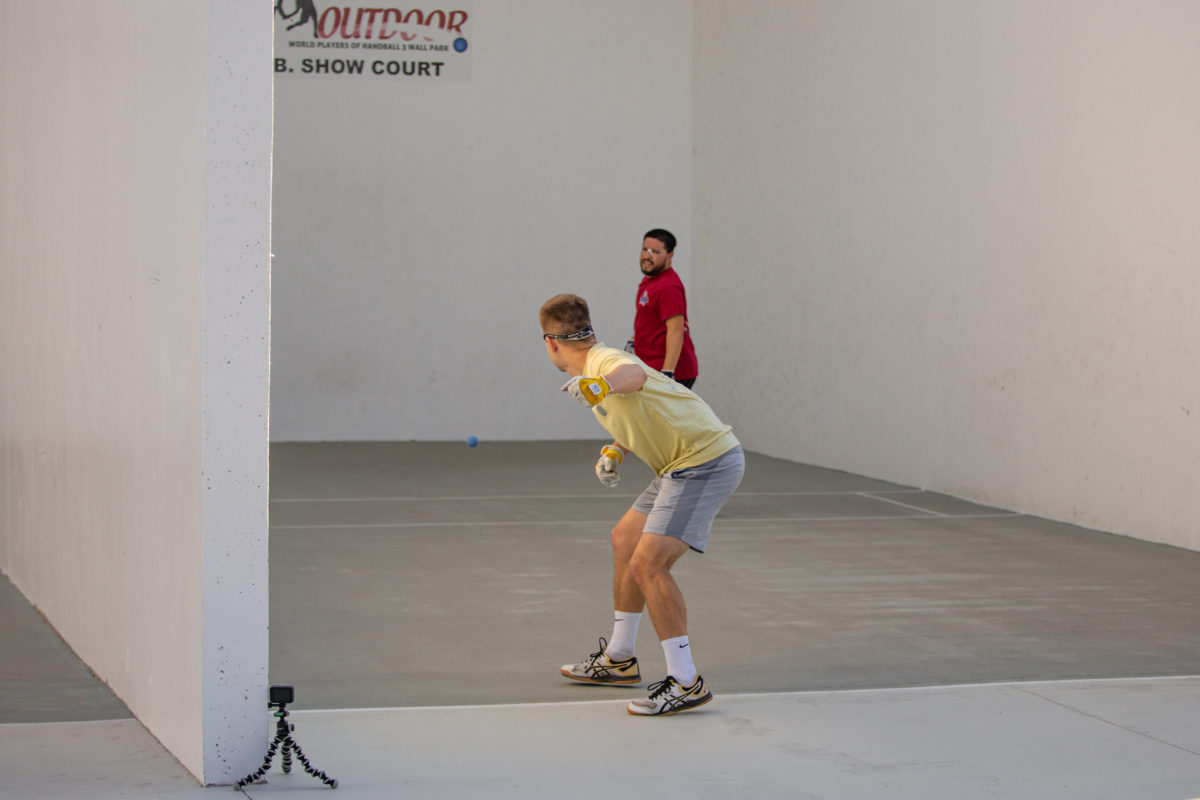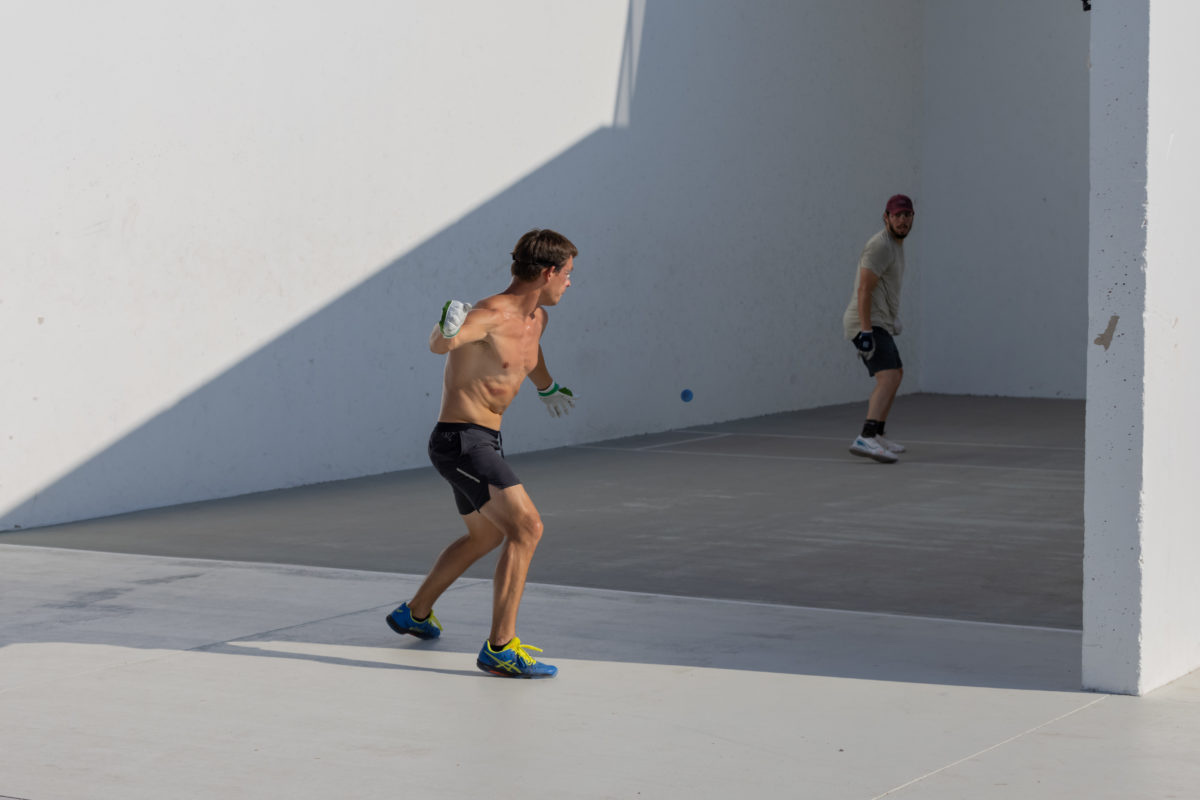WPH Press, Tucson, AZ
The WPH proudly hosted the Icebreaker 11 at Tucson’s Clark Park, the eleventh Icebreaker since the restart of pro handball in September of 2020. Dubbed the Icebreaker because the WPH was safely “breaking the ice” during the pandemic, the Icebreaker tour has attracted virtually all of the best players from North America. The Icebreaker 11 was the final opportunity for the Icebreaker pros to earn Icebreaker ranking points in advance of the Ice Bowl – the Icebreaker season-ending championship.
Round of 16 and Round of 8
Killian Carroll entered the Icebreaker 11 undefeated in Icebreaker play, having won his first and only Icebreaker start with impressive wins against Leo Canales, Jr., Shorty Ruiz, and Sean Lenning in May. Carroll faced two-time 3-Wall pro national singles champion and 2007 Australian 3-Wall national champion Emmett Peixoto in his first match of his second Icebreaker in the upper bracket quarterfinals. Peixoto defeated first-time Icebreaker qualifier John Chapman in his round of 16 clash to set up the clash with “Flash.” Carroll and Peixoto played virtually even midway through game one, with Carroll leading 7-5 against Peixoto. “So this is what playing handball feels like,” announced an exhausted Peixoto during his first timeout. Carroll returned after the timeout with a completely different mindset, first-strike killing and playing aggressively. Carroll kept his undefeated record intact with a sweep of “The Rock.”
David Fink entered the Icebreaker 11 as the #1 ranked player on the Icebreaker tour but seeded fourth. Fink faced Leo Canales, Jr. in the second upper bracket quarterfinal following Leo’s three-game marathon win against Adam “Bernie” Bernhard. Canales calls Fink his toughest opponent and it showed in Fink’s dominant victory. Fink led 9-8 in game one and scored 21 of the final 25 points of the match against a befuddled Canales.
Shorty Ruiz entered the Icebreaker 11 as the second-ranked Icebreaker pro and second seed. Ruiz faced local rival Sam Esser in the first bottom bracket quarterfinal. Esser earned his first Icebreaker victory in his fifth Icebreaker start with a convincing victory against Stephen Cooney. Ruiz and Esser traded the lead five times in the opening game, with both playing high-level ball. Esser wrestled control of the game and served at 14-12 for a one game lead. “I thought I hit a good serve down the right but Shorty re killed it,” stated Esser after the match. Esser made the mistake of not expecting a return, allowing Ruiz’s paddle down the right to slip out of his reach. Ruiz scored the final four points of the game to steal game one and cruised in game two to advance to the bottom bracket semifinals.
Daniel Cordova was making his first Icebreaker appearance and came out as hot as the Clark Park cement, blitzing first-time Icebreaker qualifier Danny Perez in the round of 16. Cordova then faced third-seeded Southwest rival Abraham Montijo for a spot in the semifinal. Cordova served, power-ceiling’ed, and killed his way to the most lopsided quarterfinal match in Icebreaker history, holding Montijo to just one point in the two-game sweep.
Semifinals
The semifinals produced two of the most exciting matches in Icebreaker history, as four of the game’s best 3-Wallers laid all of their skills, will, and heart on the line for a spot in the final.
Killian Carroll started quickly against David Fink in their first 3-Wall matchup in the upper bracket semifinal, building a 12-2 first-game lead. “Killian was so consistent with his dump fly kills and that surprised me, and of course, he really shrunk the court with his speed and re kills,” stated Fink.
Fink found the form that has won him two Icebreaker titles, scoring eight straight points to cut Carroll’s lead to two at 10-12. A double fault halted Fink’s momentum, as Killian scored the final three points of the game to take a one-game lead.
Fink surged to a 12-8 second game lead, but an error allowed Carroll to strike. “It seems like every error against Killian will cost you at least six points,” lamented Fink.
Carroll scored six straight, standing one swing from his second consecutive final at 14-12. Carroll appeared to hit an ace serve just over the short line but called it short. Fink earned a side out with a strong return of serve and served out the game with four straight points to force a third.
Fink played at his highest level to start the third, hitting ace serves, left and right-handed kills, and fly kills to take a 12-3 lead. Fink had a left-handed setup to make the score 13-3, but just came up short. Fink would not serve again, as Carroll ran the table with impeccable play, never giving Fink an opportunity to play offense. “Killian operates in a positive feedback loop,” stated Emmett Peixoto, who has been on the wrong end of several Carroll comebacks. “When the match reaches the critical juncture where he has to make a move or lose, he presses really hard. He starts to hit better shots and gets more confident as a result.”
“The conditions are really, really brutal,” stated Carroll. “I was completely dehydrated and it’s just not fun to play in that state.”
In the bottom bracket semifinal, Shorty Ruiz was aiming for the Cordova Slam, as he defeated Lucho Cordova in a tiebreaker six weeks prior. Ruiz played his best ball of his Icebreaker career in game one against Danos, moving his feet and putting himself in position to hit every shot with power. Ruiz built a 9-2 lead and eventually closed out game one, 15-8.
Danos responded in game two, hitting ace serves and power ceilings to build a seemingly insurmountable 12-2 lead. Danos had a huge setup to score the thirteenth point but floored a simple offensive chance with his right hand from in front of the short line. Ruiz took advantage, scoring 12(!) consecutive points to serve for the match at 14-12. Ruiz gave Danos a big setup in the front court and started walking back to receive serve, only for Danos to hit the ball right back to his right hand. Inexplicably, with the entire right side of the court open and Danos trapped in the front left corner of the court, Ruiz flubbed the match-ending opportunity. Danos quickly seized control of the game, scoring four consecutive points to force a third. Ruiz was exhausted and deflated in the third, managing to score just three points.
Final
Carroll and Danos had 19 hours to rest before they faced off the next day, with Carroll flashing several battle scars from diving on Clark Park’s pavement.
Game one was close throughout, as Carroll struggled with Danos’s hop serve, but stayed within striking distance with hustle and timely kills. Danos eventually served for the game at 14-12, but as we have seen in so many Icebreaker matches, 14-12 is the Icebreaker curse. Just as so many before him have experienced, Danos failed to score the fifteenth point, opening the door for four straight Carroll points and a one-game lead.
Carroll dug into his “positive feedback loop,” scoring 17 straight points (four to end game one) to take a 13-0 second game lead. Carroll closed out the game and match to stay undefeated in Icebreaker play.
“I still feel like I have a long way to go and a lot to learn in 3-Wall,” stated Carroll. “I am enjoying learning and trying new shots. For me, it’s back to serious training as the 1-Wall, 3-Wall, and 4-Wall Nationals approach.”
Quarterfinals
Carroll def Peixoto 15-7, 15-5
Fink def Canales, Jr. 15-9, 15-3
Cordova def Montijo 15-0, 15-1
Ruiz def Esser 16-14, 15-9
Semifinals
Carroll def Fink 15-10, 14-16, 15-12
Cordova def Ruiz 8-15, 16-14, 15-3
Final: Carroll def D. Cordova 16-14, 15-3
Thank you to the WPH staff, Che Lowenstein, the WPH donors, and the players for a sensational WPH Icebreaker 11. The WPH is proud to have safely hosted 11 Icebreaker events since September of 2020, enabling the world’s best players to compete and for handball’s fans to enjoy the game’s best players in action. Thank you WPH!
Stay tuned for the Ice Bowl Icebreaker Player’s Championship in August.










